Why are history majors successful in journalism careers?
History “represents the underlying stratum of consciousness out of which news judgments are made. More generally, the study of history and the humanistic social sciences promote knowledge of the world. They provide a textured backdrop to a journalistic reading of the world.”
—G. Stuart Adam, The Routledge Companion to News and Journalism
“The study of history . . . provides information important for identity and background. It helps us to know ourselves both individually and collectively, and it provides knowledge valuable in helping us to understand people and the world around us. Although we may assume that particular events that occurred in the past will never recur in exactly the same way, we also know that an understanding of them will help us to deal with similar events in the future. Whether we are considering wars or social movements or any other major topic, we can be certain that a knowledge of them and the answers to the questions they raise serve a purpose of anyone who hopes to be an informed and responsible person today . . . a knowledge of history provides a broader perspective than one gets from simply studying the tools of the trade.”
— W. David Sloan, “Why Study History?” in American Journalism
“The purpose of history is to assess the past so that we may more effectively construct the present and future, just as the journalist must capture the news to help inform and sometimes direct daily decisions. Historical research is about resorting life and providing context.”
— D.G. Godfrey, “Editor’s Note,” Journal of Broadcasting and Electronic Media
Historians “seek to capture the thought and feeling of a time past as they are associated with a particular problem under investigation. Historical study would need no further justification than that. One might as well be obligated to justify humankind’s interest in art or its continuing search for knowledge. If there is value in studying the past, then that fact, furthermore, automatically justifies historical research methods, for they provide the only way of recapturing, as it were, the past as it actually occurred.”
— W. David Sloan, “Why Study History?” in American Journalism
“We hear often about an historian acting as a kind of detective, and while that analogy fits, it would be more appropriate to see the historian as an investigative journalist looking at the past.”
— D.G. Godfrey, “Editor’s Note,” Journal of Broadcasting and Electronic Media
“Historical study provides the opportunity to inform later generations about the nature of humankind and behavior; it contributes to the authentic record of human experience. The primary goal of historians, therefore, is to explain particular things of the past fully and truthfully.”
— W. David Sloan, “Why Study History?” in American Journalism
“Historians, like journalists, must remain faithful to the factual records. While movie, television directors, and novelists may take dramatic license, such flights of fancy are forbidden to historians and reporters. . . . Historic truths, like journalistic facts, must be derived from all available evidence. Evidence—solid evidence—is that which establishes the existence, or nonexistence, of a fact. This is the result of searching, detective work, indeed the whole discovery process. Put another way, writing good history involves the gathering of primary materials, the organization of puzzle pieces, and the building of the case. . . . The study of history offers pragmatic value as it increases a scholar’s and the journalist’s ability to undertake good writing, problem solving, communication, and reasoning. . . . The search for the discovery of truth is similar, and the rules of evidence and tests of authenticity are parallel.”
— D.G. Godfrey, “Editor’s Note,” Journal of Broadcasting and Electronic Media
“Tony is also a Pulitzer Prize-winning journalist and author. A native of Washington, DC, he holds an undergraduate degree in history and a graduate degree in journalism. . . Tony never planned to be a journalist when he enrolled in college, but studying history taught him how to view sources critically and skeptically.”
–John Fea, Why Study History?
“More generally, we can state that at the academic level the study of history provides an efficacious means of intellectual stimulation and satisfaction. Because historical research requires the full range of rigor, critical thinking, mature judgment, analytical ability, and imagination, relying greatly on the historian’s own powers rather than on scientific or mathematical formulas, it is unsurpassed among scholarly disciplines in exercising the mind. . . .. For that reason alone, it bears serious study. Among the panoply of other values that one might recite, . . . [history] provides comparisons that help us to assess and evaluate the present.”
— W. David Sloan, “Why Study History?” in American Journalism
“For the media profession, the return to a study of history has become an absolute necessity. Journalists have to study what ‘man has done to discover what man is.’
—George Claassen, “Journalism and Cultural Literacy: An Exploration Towards a Model for Training Journalism Students” South African Journal for Communication Theory and Research
“Barriers that have traditionally existed between journalism and history are likely to be much more porous in these challenging times. The political and cultural attacks on journalism and history are driven by similar ideologies and we ought to fight against them together rather than let ourselves be divided. The rough relationship between those who write the first draft of history and those who edit that draft for posterity has been strained, but we cannot let it break. We all believe that studying history is important. We have dedicated our lives to it. If we want our research to continue to have an impact on future generations, incorporating media in the ways that research is published and shared will be essential.”
—Jason Lee Guthrie, “Revising the First Rough Draft: On Journalism, History, and Journalism History,” in American Journalism
“The research method of historiography requires skills similar to an experienced journalistic producer in gathering, organizing, and verifying facts, along with the vital evaluation of different kinds of evidence. Even their uses by historians and journalists are often similar. The journalist-producer must dissect written, oral, and visual records; analyze physical evidence; and make sense of these as a factual story. . . . The challenge of the historian is very much analogous to the seasoned in-depth reporter. . . . More importantly for the journalist-producer-historian, studying history helps to increase communication abilities, facilitate problem-solving skills, and improve skills of reasoning, deduction, organizing, and analyzing evidence that are all required to defend any position. . . . Why teach historical research methods? Because effective use of such methods can enhance the development of better journalistic skills. . . . If we look at the historiographic and journalistic parallels in the research process, we may well question whether there is a difference. After all in both situations one must:
- Identify and focus the general topic of interest.
- Study the literature, information, and the context of the time period.
- Examine and compare what has been written.
- Look for primary unfiltered sources.
- Suggest a framework that can add to new knowledge.
- Uncover the primary evidence that portrays a story and then analyze the evidence.
- Weigh evidence against various tests of authenticity.
- Examine and triangulate collaborative, contradictory, and physical evidence.
- Peel back the layers of the creative process to assure that the primary evidence is valid.
- Pay particular attention to visual and oral evidence, what it communicates, and the needs for verification and/or support.
- Provide supportive evidence wherever media sources are called into question by the skeptics of media as evidence.
- Suggest a theoretical approach where the work goes beyond traditional patterns, chronology, or the Five Ws (who, what, when, where, and why) being sure that the theoretical approach chosen is appropriate to the object of analysis and the questions at hand.
- Organize the analyzed evidence to support the narrative facts; and,
- Write and rewrite.
Researchers in each discipline must understand the topic, immerse themselves in primary factual information, assess that evidence, and recreate a new picture that extends our understanding of the world around us. So, we must prioritize the teaching of both history and historiography as well as behavioral science. Both are essential in acquiring new knowledge, but history has a particularly valuable parallel to journalism and journalistic training. To ignore, overlook, or relegate it to a part of another course is to auction our journalistic skills set, our understanding, not just of the past, but of the future.”
—D.G. Godfrey, “Editor’s Note,” Journal of Broadcasting and Electronic Media
“. . . the historian [as well as the journalist] must place in context the information they have collected and do this by addressing questions related to causation, generalization, interpretation, and the establishing of significance.
—W. D. Sloan and J.D. Startt, The Media in America: A History
“Sonia majored in history at a liberal arts college in the Northeast and later pursued a master’s degree in Latin American studies. She believes that a history major is the best foundation for a career in journalism. Her studies in history helped her to do research, taught her where to look for needed documents, and made her a better writer. She adds, ‘More important, however, [my history major] taught me to think critically. Because when you look at events in history, by looking at how those situations were resolved you can understand a lot about what is going to happen in the future. The past is prologue.’ Sonia believes that employers are always looking for people who can do research, think critically, place current events in historical context, and write clearly. She concludes that she ‘cannot think of a better major that gives you all that.’”
—John Fea, Why Study History?
“Amy is a passionate student of the past who directs the honors program at a small liberal arts college in New York, but every two years she works as the supervisor of the research room for NBC’s coverage of the Olympic Games. . . . As a historian, Amy knows how to turn small details into a compelling story for NBC viewers. As she puts it, ‘The ability to think, write, speak, communicate, innovate, and create: that is history well done.’”
—John Fea, Why Study History?
“Chris Berman at ESPN says simply, . . . ‘You don’t have to major in communications or journalism. I’m not saying that’s bad. . . . I majored in history. . . . . Maybe somebody would be intrigued with a person who majored in history. But once you have that first job, it’s what you do on the air—the communications major doesn’t get you the second job. Then it becomes my tape vs. your tape.’”
—Tom Hedrick, The Art of Sportscasting: How to Build a Successful Career
Notable journalists who majored in history
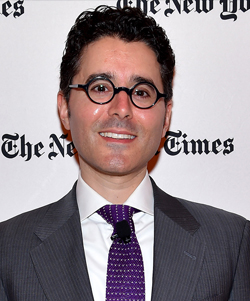
Michael Barbaro, host, New York Times podcast The Daily
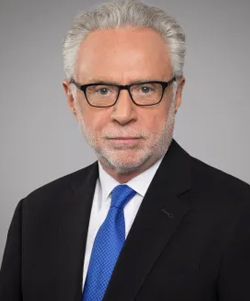
Wolf Blitzer, CNN anchor; host, The Situation Room with Wolf Blitzer
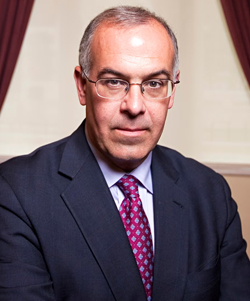
David Brooks, columnist, New York Times, Wall Street Journal, The Weekly Standard
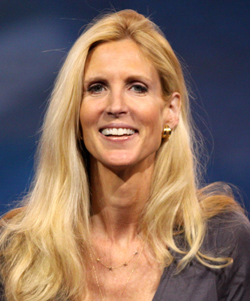
Ann Coulter, conservative author and syndicated columnist
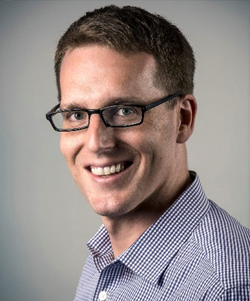
David Fahrenthold, New York Times and Washington Post, Pulitzer Prize winner
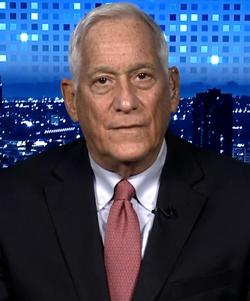
Walter Isaacson, co-host, Amanpour & Company; former president, CNN; former editor, Time
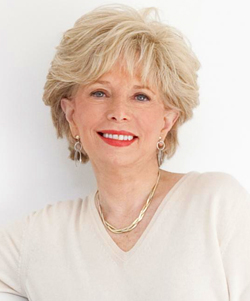
Lesley Stahl, CBS News 60 Minutes correspondent
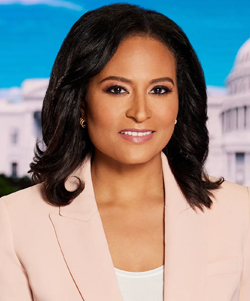
Kristen Welker, NBC News; host, Meet the Press
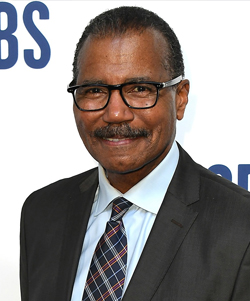
Bill Whitaker, 60 Minutes correspondent
Others
Penny Abernathy, Knight Chair in Journalism at the University of North Carolina
Jill Abramson, former executive editor (and first female), New York Times
Len Ackland, founding director of the Center for Environmental Journalism
Ya’akov Ahimeir, Israeli TV and radio personality
Tom Allon, publisher and former co-owner, City & State NY, Manhattan Media
Eric Alterman, media critic; contributor, The Nation, Washington Monthly, New Republic
Marc Ambinder, former politics editor, The Atlantic; correspondent, National Journal
Michal Ansky, food writer
Binyamin Appelbaum, business and economics representative, New York Times editorial board
Anne Applebaum, staff writer, The Atlantic
Ramtin Arablouei, podcast host, NPR’s Throughline
Allison Arieff, Editorial Director of Print, MIT Technology Review
David Axe, military correspondent, blogger, War Is Boring
John U. Bacon, sports writer and commentator; contributor, New York Times, Time
Oliver Balch, contributor, The Guardian, Daily Telegraph, Financial Times
David Barboza, Pulitzer Prize winning journalist, New York Times
Nahum Barnea, journalist, Yedioth Ahronoth; winner, Israel Prize
Emma Barnett, presenter of Woman’s Hour on BBC radio
Carl Begai, Canadian music writer
Edward Behr, noted 20th-century war reporter, Newsweek
Peter Beinart, editor, The New Republic
Ravi Belagere, editor, Hai Bangalore and O Manase
Jason Bellini, correspondent, Wall Street Journal
Daniel Berehulak, New York Times photojournalist, Pulitzer Prize winner
Mary Berg, chef, TV presenter, hostess, Mary’s Kitchen Crush and The Good Stuff
Peter Bergen, CNN national security analyst; host, In the Room with Peter Bergen
Chris Berman, SportsCenter anchor, ESPN
Richard Bernstein, columnist, International Herald Tribune, former NYT book critic
Kate Betts, fashion writer, Time, The Daily Beast, CNN
Clara Bingham, columnist for Vanity Fair, The Huffington Post, and The Daily Beast
Alan Bjerga, global food policy reporter, Bloomberg News
Olav Bjortomt, contributor, The Guardian; international quiz champion
Conrad Black, publisher
Lesley M.M. Blume, reporter, ABC News; contributor, Vanity Fair, New York Times
Max Blumenthal, contributor, New York Times, The Nation, The Daily Beast, Al Akhbar
Max Boot, editor, Christian Science Monitor, Wall Street Journal, commentator
Mary Bowers, journalist, The Times (London)
John Bowman, RTE presenter
Tom Bowman, NPR Pentagon reporter
Robert H. Boyle, former senior writer, Sports Illustrated, environmental activist
Bjørgulv Braanen, editor-in-chief, Klassekampen
David Brancaccio, Marketplace, American Public Media
Douglas Brinkley, CNN Presidential Historian
David Brock, founder, Media Matters for America
Priscilla Buckley, former managing editor, National Review
William F. Buckley, founder, National Review; former host, Firing Line
Stephen Bush, associate editor, The Financial Times
Fátima Campos Ferreira, Portuguese TV presenter
Erwin Canham, longest-serving editor of the Christian Science Monitor
Sarah Carey, Irish Independent writer; former columnist, The Sunday Times, The Irish Times
Dan Carlin, podcaster and political commentator, Common Sense
Tucker Carlson, former Fox News host
Russell Carollo, Pulitzer Prize winning investigative reporter, LA Times, Dayton Daily
Tom Cassidy, former CNN business reporter and anchor
Melissa Chan, columnist, New York Time, The Atlantic, The Guardian, Washington Post
Nayan Chanda, founder and editor-in-chief, YaleGlobal Online
Leslie T. Chang, former China correspondent, Wall Street Journal
Bruce Chatwin, travel reporter, Patagonia
Sarah Chayes, former senior associate, Carnegie Endowment, former NPR reporter
David Chipp, former editor-in-chief, Reuters
Arthur Chu, columnist, Daily Beast, Salon; Jeopardy! Champion
Elizabeth Cohen, CNN senior medical correspondent
Noam Cohen, technology reporter, New York Times
Roger Cohen, editor, New York Times, International Herald Tribune
Tamara Cohen, Sky News correspondent; former editor, Daily Mail
Stephen Collins, political correspondent and editor, The Irish Times
Joe Conason, founder and editor-in-chief, The National Memo
Alice Cook, sports reporter specializing in figure skating
David Corn, Mother Jones bureau chief; former editor, The Nation
Ana Marie Cox, founding editor, Wonkette
Joe Crowley, BBC presenter, The One Show, Countryfile, Holiday Hit Squad
Matt Dajer, co-founder, Yes Theory
Bukola Damuel-Wemimo, Nigerian news anchor
Caroline Daniel, reporter, Financial Times; editor, FT Weekend
Jonathan Davis, senior business journalist, The Economist, Sunday Telegraph, The Times
Michelle Dean, reporter; contributor, The New Yorker, New Republic, New York Times
Joe DeCamara, host, nationally syndicated shows on ESPN radio
Eefje Depoortere (“Sjokz”), host, League of Legends European Championship
David Drucker, senior writer, The Dispatch
John C. Dvorak, technology columnist and broadcaster; co-host, No Agenda podcast
Jeffrey Dvorkin, former Managing Editor and Chief Journalist, CBC Radio
George Eaton, Senior Online Editor, New Statesman
Gordon Edes, sports reporter, Chicago Tribune
Rich Edson, Fox News State Department correspondent
Kevin Fagan, cartoonist, Drabble
Nicholas Fandos, metro desk reporter, New York Times
David Farley, travel, food, and culture writer, Conde Nast, Washington Post, New York Times
Mitra Farmand, cartoonist, The New Yorker, The Nib
Avis Favaro, medical correspondent, CTV National News
Mark Feeney, arts writer, The Boston Globe
Andrew Feinberg, White House correspondent; contributor, Newsweek, Politico
Hector Feliciano, art writer, Washington Post, Los Angeles Times
Kirstin Ferguson, former Deputy Chairman of the Australian Broadcasting Corporation
Thomas Feyer, letters editor, New York Times
Alan Finder, former New York Times reporter
Leslie Finer, former reporter, BBC, Financial Times, The Observer, New Statesman, CBC
Marc Fisher, senior editor, The Washington Post
Laura Flanders, radio and TV show host, The Laura Flanders Show
Craig Flournoy, journalism professor, former reporter for Dallas Morning News
David Folkenflik, NPR correspondent and On Point host
Fiona Forbes, host, The Rush, Vancouver
Steve Forbes, editor-in-chief, Forbes magazine
Juan Forero, South America bureau chief, Wall Street Journal; formerly, New York Times
Darril Fosty, Canadian reporter, sports documentarian
Thomas Frank, contributor, Harper’s Magazine, Financial Times
Alix M. Freedman, ethics editor, Thomson Reuters
Jeffrey Friedman, founder and editor, Critical Review: A Journal of Politics and Society
Vanessa Friedman, Fashion Director and Chief Fashion Critic, New York Times
Jack Fritz, radio host, sports commentator, CBS Sports Radio
Barbara Frum, CBC journalist
David Frum, Senior Editor, The Atlantic; contributor, MSNBC
Paul Gambaccini, television and radio presenter, UK
Terry Gannon, sportscaster, NBC Sports and Golf Channel
Michael Gargiulo, anchor, WNBC
David Gerstein, comics and animation editor, Disney Comics
Keith Gessen, co-founder, co-editor, n+1
Giles Gherson, former editor-in-chief, Edmonton Journal and Toronto Star
Sagarika Ghose, columnist, The Times of India, Outlook, The Indian Express, BBC World
Charles Gibson, former host, Good Morning America
Dan Gillmor, tech writer, director of News Co/Lab
Paul Glastris, editor-in-chief, Washington Monthly; President Clinton’s chief speechwriter
William Glauber, reporter, Milwaukee Journal Sentinel
Russell Gold, contributor, Texas Monthly, Wall Street Journal, Philadelphia Inquirer
Andrew Goldberg, producer, director, documentarian; founder, Two Cats Productions
Michael Goldfarb, contributing editor, The Weekly Standard
Aaron Goldsmith, sportscaster, Fox Sports
Lewis Goodall, Analysis and Investigations Editor, The News Agents
Wade Goodwyn, NPR national correspondent
Merrill Goozner, editor, Modern Healthcare
Cheryl Gould, first female executive producer of a nightly newscast, NBC
Duncan Greive, founder and Managing Editor, The Spinoff
Daniel Gross, editor-in-chief, strategy + business magazine
Michael Gross, editor, reporter; contributor, New York Times Magazine, Esquire, GQ
Loyd Grossman, BBC presenter, MasterChef
Emil Guillermo, AsianWeek columnist
Bryant Gumbel, host, HBO’s Real Sports with Bryant Gumbel; former co-host, Today
Haviv Rettig Gur, reporter, The Times of Israel
Roy Gutman, reporter, Newsday and McClatchy News Service, Pulitzer Prize winner
Janice Hadlow, former BBC TV executive
Windsor Hanger, co-founder, Her Campus
Nikole Hannah-Jones, investigative reporter, New York Times
James Harding, former director, BBC News; co-founder, Tortoise Media
Carolyn Hax, columnist, The Washington Post
Laurie Hays, senior executive editor for beat reporting, Bloomsberg News
Jonathan Head, BBC South East Asia Correspondent
Rosalind S. Helderman, investigations reporter, The Washington Post
Seymour Hersh, investigative reporter who exposed the My Lai massacre
Andrew Heyward, former president, CBS News
Scott Higham, Washington Post investigative reporter, Pulitzer Prize-winner
Joe Hildebrand, Australian TV and radio presenter; contributor, Sydney Daily Telegraph
William Honan, former culture editor, New York Times, Newsweek, Saturday Review
Page Hopkins, MSNBC and NBC reporter
Tony Horwitz, former New York Times reporter, Pulitzer Prize winner
Chris Hughes, former publisher and editor-in-chief, The New Republic
Jan Hutchins, TV and radio reporter, producer, media consultant
Antonia Hylton, correspondent for NBC, Emmy winner for Vice News Tonight
Bruce Ingersoll, former writer, Chicago Sun-Times, Wall Street Journal
Julia Ioffe, Washington correspondent, Puck News; contributor, PBS, MSNBC, The Atlantic
John Ireland, basketball broadcaster, LA Lakers
Noah Isenberg, Chair, Department of Radio-Television-Film, UT Austin
John Iverdale, BBC and ITV broadcaster
Molly Ivins, former syndicated columnist and humorist
Christopher Jackson, news director, Finito
Peter Jenkins, former associate editor, The Independent
Vincent Jennings, former editor, Sunday Press; former manager, The Irish Press
Anuranjan Jha, Indian media personality
Eliana Johnson, Editor-in-Chief, Washington Free Beacon
Soterios Johnson, radio journalist, former local host on WNYC
Jenifer Johnston, investigative journalist; former reporter, Sunday Herald
Dan Jones, TV presenter, UK Channel 5; contributor, Evening Standard, The Telegraph
Owen Jones, columnist, The Guardian
Joseph Kahn, Executive Editor, New York Times
Rick Kamla, host, NBA TV and CBS Sports
Jodi Kantor, workplace, technology, and gender correspondent, New York Times
Jonathan M. Katz, contributor, New York Times, The New Republic, The Guardian
Kimberly Kelleher, Vice President and Publisher, SELF Magazine
Max Kellerman, boxing commentator, ESPN radio
Caroline Kellett, former fashion editor, Tatler
Kate Kelly, reporter, New York Times
Michael Kelly, former New York Times and New Republic columnist, editor
Sarah Kendzior, author, The View from Flyover Country, Gaslit Nation; contributor, MSNBC
Secunder Kermani, foreign correspondent, BBC
Oren Kessler, contributor, Wall Street Journal, Foreign Affairs, Politico, New Republic
Michael Kimmelman, architecture critic, New York Times
Ian King, business journalist, host of Ian King Live on Sky News
Shaun King, founder, The North Star; social justice activist, Black Lives Matter promoter
David D. Kirkpatrick, writer, The New Yorker; New York Times, Pulitzer prize winner
Caroline Kitchener, staff writer, Washington Post, Pulitzer Prize winner
Alison Klayman, contributor, PBS, NPR, New York Times
Jon Klein, former president of CNN/US; co-founder of Tapp Media
Gwen Knapp, sports writer, Philadelphia Inquirer, San Francisco Examiner, New York Times
Guido Knopp, German documentarian
Michael Knowles, The Daily Wire political commentator
Irving Kristol, “godfather of neoconservatism”; former contributor, Wall Street Journal
Robert Krulwich, science correspondent, NPR; co-host, Radiolab
Larry Kudlow, Fox Business commentator; former Director of the National Economic Council
Charles Kuralt, founding anchor, CBS Sunday Morning
Richard Lambert, editor, The Financial Times
Jacob Landau, founding executive director, Reporters Committee for Freedom of the Press
Mitchell Landsberg, senior editor for enterprise, Los Angeles Times
David Lazarus, business and consumer columnist, KTLA and Los Angeles Times
Laurence Leamer, political reporter and author; former editor, Newsweek
Ranald Leask, media manager, University of Edinburgh
Marc Leepson, contributor, New York Times, Washington Post, Chicago Tribune
Josee Legault, political columnist, The Gazette
Jonathan Lemire, host, Way Too Early, MSNBC; former White House bureau chief, Politico
Jessica Lessin, editor-in-chief, The Information; former Wall Street Journal reporter
Nan Levinson, civil and human rights writer; contributor, New York Times, Boston Globe
Ananda Lewis, former MTV veejay; talk show host
Mara Liasson, national political correspondent, NPR
Jonathan Liew, sports writer, The Guardian
Carol Lin, ABC and NPR reporter, CNN anchor, first to report 9/11 attacks
Joanne Lipman, chief editor, USA Today, Conde Nast, WSJ Weekend Journal
Eric Lipton, New York Times reporter, Pulitzer Prize winner
Kate Llewellyn, poet, travel writer
Sid Lowe, columnist and commentator on Spanish football
Mark Lowen, BBC News Southern Europe correspondent
Mark Lynas, environmental reporter, New Statesman, The Guardian
John R. MacArthur, president and publisher, Harper’s Magazine
Cathal Mac Coille, former presenter, Morning Ireland on RTE Radio
Ben Macintyre, reviewer and columnist, The Times (London)
Harvey Mackay, syndicated advice columnist
Juliet Macur, sports reporter, New York Times
Timmy Mallett, BBC radio and TV presenter
Matt Malone, former editor-in-chief, America magazine; media consultant
Hélène Mannarino, TV and radio presenter, France Channel C8
Mark Maremont, two-time Pulitzer Prize winner, business journalist, Wall Street Journal
Helene Chung Martin, Australian Broadcasting Corporation reporter
Jonathan Martin, bureau chief and senior political columnist, Politico
Andres Martinez, Director, Bernard L. Schwartz Fellows Program, New America Foundation
Bruno Masure, French TV presenter
Kristina Matisic, host, The Shopping Bags, Anna & Kristina’s Grocery Bag
Petra Mayer, book review editor, NPR
Simon Mayo, BBC radio presenter
Mark Mazzetti, Washington investigative correspondent, New York Times
Lenny McAllister, political commentator, RedState, The Root
Harry McCracken, editor, Fast Company, editor-at-large, Time
Gerry McGeough, editor, The Hibernian; former Sinn Fein activist
Doyle McManus, contributor, PBS Washington Week
Dave McNary, Variety journalist
Carmela Menashe, Israeli writer on IDF matters
Kerry-Anne Mendoza, former editor-in-chief, The Canary
Mini Menon, co-founder and editor, Live History India
Lulu Miller, Peabody Award-winning science reporter, NPR
Kay Mills, one of the first women to serve on the Los Angeles Times editorial board
Janice Min, editor, People Magazine and InStyle; editor-in chief Us Weekly
Fiona Mitchell, correspondent, RTE, TV and radio
Seth Mnookin, science writer; contributor to Bloomberg News, New York Times
Maurizio Molinari, editor-in-chief, La Repubblica, former editor, La Stampa
Frank Moraes, former editor, Times of India, The Indian Express
Andrew Morton, former reporter, Daily Star, News of the World, and Daily Mail; biographer
Roger Mosey, former Head of BBC Television News and director of Olympic coverage
Michael C. Moynihan, former managing editor, Vice News; co-host, The Fifth
Roger Mudd, former CBS reporter
Ben Mulroney, producer and former TV host, CTV
Dermot Murnaghan, presenter, Sky News, CNBC Europe, BBC
Andrew Napolitano, columnist, Reason and The Washington Times, analyst for Fox News
Maryam Nemazee, broadcaster, Al-Jazeera
Keren Neubach, Israeli journalist, TV presenter
Martin Newland, former editor, The Daily Telegraph
Brad Newsham, travel writer, Take Me With You, All the Right Places
Leon Neyfakh, radio and podcast host, Slow Burn, Fiasco
Bianca Nobilo, CNN International anchor
Martin Nolan, reporter and editor, The Boston Globe
Rex Nutting, bureau chief, MarketWatch
Isabel Oakeshott, political editor, The Sunday Times
James O’Brien (“Jomboy”), baseball commentator and Internet personality
Buster Olney, sports writer, ESPN, The New York Times
David Olusoga, historical documentarian, BBC; contributor to The Guardian
Bill O’Reilly, former Fox News host
Charles Ornstein, senior editor for ProPublica specializing in health care
Shai Oster, Asia bureau chief, The Information; formerly Wall Street Journal, Bloomberg
Donie O’Sullivan, CNN correspondent
Joshua Ozersky, founding editor of New York Magazine’s food blog, Grub Street
Jon Palfreman, producer, director, reporter, Frontline, Nova
David Pallister, investigative journalist, The Guardian
Caitriona Palmer, human rights investigator; former correspondent, The Irish Times
Sal Paolantonio, ESPN NFL reporter
Sofia Papaioannou, Greek TV host, producer, 360 Degrees
Robert Parker, former wine critic, The Wine Advocate
Malini Parthasarathy, former editor, The Hindu; chair, THG Publishing
Jim Paymar, financial correspondent and anchor, CNBC and BusinessWeek
Henry Payne, editorial cartoonist, The Detroit News, National Review
Norman Pearlstine, former editor and executive, Los Angeles Times, Time, Bloomberg
Will Pearson, co-founder, mental floss magazine
Danny Peary, film critic, Cult Movies
Jess Phoenix, co-host of Discovery series Hunting Atlantis
Danielle Pletka, Senior Fellow, American Enterprise Institute
Ramesh Ponnuru, editor, National Review; columnist, Washington Post
Nathaniel Popper, finance and technology reporter, New York Times
Michael Portillo, documentarian, Great British Railway Journeys, Great Continental Railway
Corey S. Powell, science writer, editor-in-chief of Discover magazine
William Powers, tech writer, Hamlet’s BlackBerry
Dennis Prager, conservative talk show host, co-founder, PragerU
Eyal Press, contributor, The New Yorker, New York Times
Katharine Preston, contributor, Daily Telegraph, Psychology Today, Salon
Gilles Pudlowski, French food critic, Saveurs, Cuisine et Vins de France, blogger
Lydia V. Pyne, science writer, National Geographic, Wall Street Journal, ABC
Bill Raftery, college basketball analyst, CBS Sports
Joseph Rago, Wall Street Journal writer, Pulitzer Prize winner
Jane Randall, former fashion model, politics commentator, The Jersey Report
Adam Raphael, labor reporter, presenter of BBC’s Newsnight
Susan Rasky, former political reporter, New York Times
Flint Rasmussen, bull riding commentator, Professional Bull Riders
Romesh Ratnesar, Deputy Editor, Bloomberg Businessweek; former editor, Time
Guy Raz, podcaster, NPR radio host
J.J. Redick, ESPN basketball analyst
Betsy Reed, editor-in-chief, The Intercept and Guardian US
Trish Regan, conservative commentator, talk show host
Dean Regas, TV host, Star Gazers, astronomy popularizer
Levan Reid, sports reporter, WBZ-TV Boston
Frank Rich, columnist, New York Times
Peter Riddell, former reporter, Financial Times
Michael Riedel, theatre critic, New York Post
James Risen, New York Times reporter, Pulitzer Prize winner
Siobhan Roberts, science reporter
Andrea di Robilant, former diplomatic correspondent, La Stampa; reporter, La Repubblica
David Rohde, Senior Executive Editor, National Security, NBC News
Simon Romero, national correspondent, New York Times
Charlie Rose, former talk show host, PBS
Howard Rosenberg, TV critic, Louisville Times, Los Angeles Times, Pulitzer winner
Philip Rucker, National Editor, Washington Post
Alan Ruddock, former editor, The Sunday Times
Christopher Ruddy, CEO and majority owner, Newsmax Media
Jenni Russell, columnist, The Times, The Guardian, New York Times
Luke Russert, contributor, NBC, MSNBC
Chris Russo, sports radio host; founder, Mad Bog Sports Radio
Rob Ryan, sportswriter, The Boston Globe
Kai Ryssdal, host, Marketplace, American Public Media
Kevin Sack, senior reporter, New York Times
Stephen Sackur, host of HARDtalk on BBC News
Claire Saffitz, food writer, contributing editor, Bon Appetit
Mike Sager, founder, The Sager Group; contributor, Washington Post, Rolling Stone, Esquire
Yoshiko Sakurai, TV presenter, president, Japan Institute for National Fundamentals
Faith Salie, contributor to NPR and CBS Sunday Morning
David Samuels, contributor, New York Times Magazine, Harper’s Magazine, The Atlantic
Clementine Sarlat, French sports reporter
George Savarese, ESPN radio, NPR
Joe Scarborough, host, Morning Joe, MSNBC
Eric Schlosser, investigative journalist, Fast Food Nation, Reefer Madness
Kathryn Schulz, staff writer, The New Yorker, Pulitzer Prize winner
Sigrid Schultz, first female foreign bureau chief of a major U.S. newspaper , Chicago Tribune
Nina Gilden Seavey, documentary filmmaker
Robert B. Semple, Jr., editor, New York Times editorial page, Pulitzer Prize winner
Charles Sennott, founder and Editor-in-Chief, The GroundTruth Project
Howie Severino, anchor, host, podcaster, GMA Network
Mary Shane, first female play-by-play Major League Baseball broadcaster
Shradha Sharma, founder and CEO of YourStory
Neil Sheehan, New York Times reporter who obtained the Pentagon Papers
Tim Shipman, former political editor, The Sunday Times
E.R. Shipp, New York Daily News columnist, Pulitzer Prize winner
Suzy Shuster, sportscaster, ABC, ESPN, Turner, Fox, HBO
John Sickels, baseball writer, ESPN; editor, Baseball Prospect Book
Anne-Marie Sicotte, editor in chief, L’Eclusier
Sam Sifton, food editor, New York Times
Mark Simpson, former BBC Ireland correspondent
Mary Taylor Simeti, food reporter, contributor to New York Times and Financial Times
Alexander Sirota, photographer and chronicler of the Chernobyl disaster
Stephen G. Smith, former senior editor, Atlantic Media, Newsweek, Time, U.S. News
Sanford Socolow, former executive producer, The CBS Evening News with Walter Cronkite
Vishnu Som, executive editor and principal anchor, New Delhi TV
Michael Sragow, film critic Baltimore Sun, San Francisco Examiner, New York Times, Salon
Eric Stange, owner, Spy Pond Productions
Jeff Stein, editor-in-chief, SpyTalk; former columnist, Newsweek and Washington Post
Leonard Steinhorn, political analyst, CBS News
Greg Steinmetz, former business reporter, Wall Street Journal, Newsday
Ira Stoll, former vice president and manager, The New York Sun
Joe Stroud, former editor and senior Vice President, Detroit Free Press
Charles Strum, former senior editor, New York Times
Ray Suarez, radio and TV host, NPR and PBS
Bob Sullivan, founding member, MSNBC
Tom Switzer, Executive Director, Centre for Independent Studies; radio host
Jake Tapper, CNN anchor; host, The Lead with Jake Tapper
Kate Taylor, cultural critic, The Globe and Mail
Dominique Tchimbakala, Congolese journalist and TV presenter
Nicolas Tenzer, editor, Le Banquet; founder, CERAP
Louis Theroux, BBC documentarian
Hadas Thier, economics and politics writer, In These Times, Teen Vogue, The Nation
Simon Thomas, soccer analyst, Sky Sports
Steven L. Thompson, technology writer; former editor, Autoweek and Cycle World
Alice Thomson, associate editor and weekly columnist, The Times (London)
Richard Threlkeld, former CBS News correspondent
Krista Tippett, host, On Being podcast
Simon Tisdall, assistant editor, The Guardian
Jonathan S. Tobin, editor-in-chief of Jewish News Syndicate
Jeffrey Toobin, CNN legal journalist
Stéphane Trano, French news correspondent, Le Monde
Peter Trippi, editor-in-chief, Fine Art Connoisseur
Danielle Trussoni, Writerly podcast host; columnist for New York Times Book Review
Ryan Tubridy, RTE Radio presenter; host, The Late Late Show
Nick Turse, investigative reporter, fellow at The Nation Institute
David Unger, former editorial writer, New York Times
Siva Vaidhyanathan, columnist, The Guardian and Slate
Tom Vanden Brook, correspondent, USA Today
Natasha Vargas-Cooper, contributor, New York Times, Wall Street Journal
Thomas Vinciguerra, founding editor, The Week magazine; contributor, GQ, New York Times
Milton Viorst, former Middle East reporter for The New Yorker
Yasmin Vossoughian, anchor and reporter, MSNBC
Dominic Waghorn, Diplomatic Editor, Sky News
David Wallace-Wells, environmental correspondent, New York Times
Robert Waller, British election expert; pollster, The Almanac of British Politics
John Walsh, host, America’s Most Wanted
James Waterson, media editor, The Guardian; former political editor, BuzzFeed
Joseph P. Watkins, MSNBC political analyst
Jesse Watters, Fox News commentator
Merryn Somerset Webb, Senior Columnist, wealth, investing, Bloomberg
Jamie Weinstein, political commentator and satirist; host, The Dispatch podcast
Jiang Weiping, Chinese journalist
Michael Weiss, contributing editor, New Lines; senior correspondent, Yahoo News
Mark Weston, author and reporter, ABC News; contributor, Washington Post, LA Times
Jennifer Westhoven, reporter, Reuters, HLN
Lally Weymouth, Senior Associate Editor, The Washington Post
Sean Whelan, RTE Washington correspondent
Jacqueline Whitelaw, former technical and engineering correspondent and editor
Annabelle White, food editor, New Zealand Woman’s Weekly
Michael White, former associate editor, The Guardian
Patrick Franklin White, National Correspondent, The Globe and Mail (Toronto)
Craig Whitlock, national security correspondent, The Washington Post
Peter Wilby, former editor, The Independent on Sunday and New Statesman
Brian Williams, Canadian Olympic sportscaster
Marion Winik, NPR reporter, All Things Considered
Matthew Winkler, co-founder and former editor-in-chief, Bloomberg News
Hannah Witton, broadcaster specializing in relationships
Jennifer Wolff, TV reporter, host
Bob Woodward, associate editor, Washington Post
Charles Wooley, Australian presenter, Channel Nine’s 60 Minutes
Maev-Ann Wren, economics editor, The Irish Times
Ann Wroe, obituaries editor, The Economist
Dori Jones Yang, former reporter, China Business Review, Business Week, U.S. News
Jim Yardley, Europe editor, New York Times
Kristen Millares Young, investigative journalist and novelist
Kate Zernike, national correspondent, New York Times
Tom Zoellner, former reporter, Salt Lake Tribune, San Francisco Chronicle, ArizonaRepublic
Jeff Zucker, former president, CNN International; former CEO, NBCUniversal
